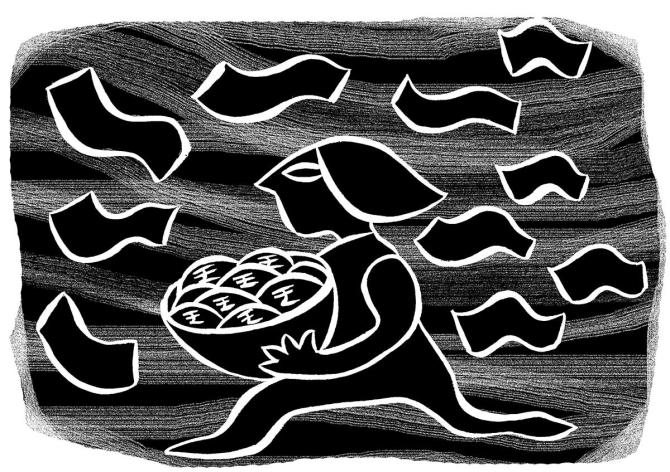Outflows could be a result of investor dissatisfaction with certain schemes, bank fixed deposits becoming attractive, and a decline in lump sum flows into MFs.
Abhishek Kumar reports.

Balanced advantage funds (BAF), which emerged as an investor favourite in the latter part of 2021, have hit a rough patch in terms of attracting inflows.
In the past four months, investors have pulled out a net Rs 2,680 crore from the hybrid mutual fund (MF) offering.
This comes even as the equity market remains volatile and debt yields are elevated — a scenario suited for investment in BAFs.
Industry executives and MF distributors say outflows could be a result of investor dissatisfaction with certain schemes, bank fixed deposits (FDs) becoming attractive, and a decline in lump sum flows into MFs.
“In 2021, there was a lot of euphoria around BAF.
"New fund offerings (NFOs) also saw record investments coming in.
"In such a scenario, there’s always a case of mis-selling or investors coming in with wrong expectations. These investors might be moving out now," said a senior executive of a large fund house.
While BAF as a category has always been there, the hybrid fund got a new life in the latter part of 2021 as equity fund investors looked out for a safer category amid high equity valuations after a strong post-pandemic market rally.
The category also got a push from market leader SBI MF’s NFO in August 2021.
Extensive marketing and distribution push ensured NFOs collected a record sum of Rs 13,000 crore.
Riding the rising investor interest in BAFs, NJ MF also collected over Rs 5,000 crore through NFO in October 2021.
The average monthly net inflows into BAF schemes stood at Rs 4,750 crore in 2021-22, compared with Rs 480 crore in the present financial year (until January).
When BAFs caught investor fancy, the past returns were impressive.
In addition, the product was pitched to new investors as a lower-risk option.
Now that bank FD rates have gone up and most BAFs haven’t delivered good returns, these investors are likely to be moving back to FDs, observed a senior MF distributor Sadashiv Phene.
The performance of BAFs in the past year has been mixed.
While a majority of schemes have delivered returns better than the Nifty50 (up 3.7 per cent), some schemes have given nil returns.
Rushabh Desai of Rupee With Rushabh Investment Services says while debt fund yields are elevated, BAFs may not be able to take full advantage, considering most maintain a minimum of 65 per cent allocation in equities (including equity arbitrage) to qualify for equity taxation.
“As the arbitrage portion may not deliver more than 6 per cent, savvy investors might want to do the equity and debt allocation themselves,” he said.
The yields of most debt funds are now over 7 per cent.
In the past few months, multi-asset allocation funds have emerged as the preferred hybrid option, going by inflows in December and January.
Industry data shows that net inflows into multi-asset funds were above Rs 2,180 crore in January, which is the highest in at least the post-pandemic period.
However, MF executives and distributors feel it is unlikely that the growth of multi-asset funds is coming at the cost of BAFs.











